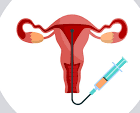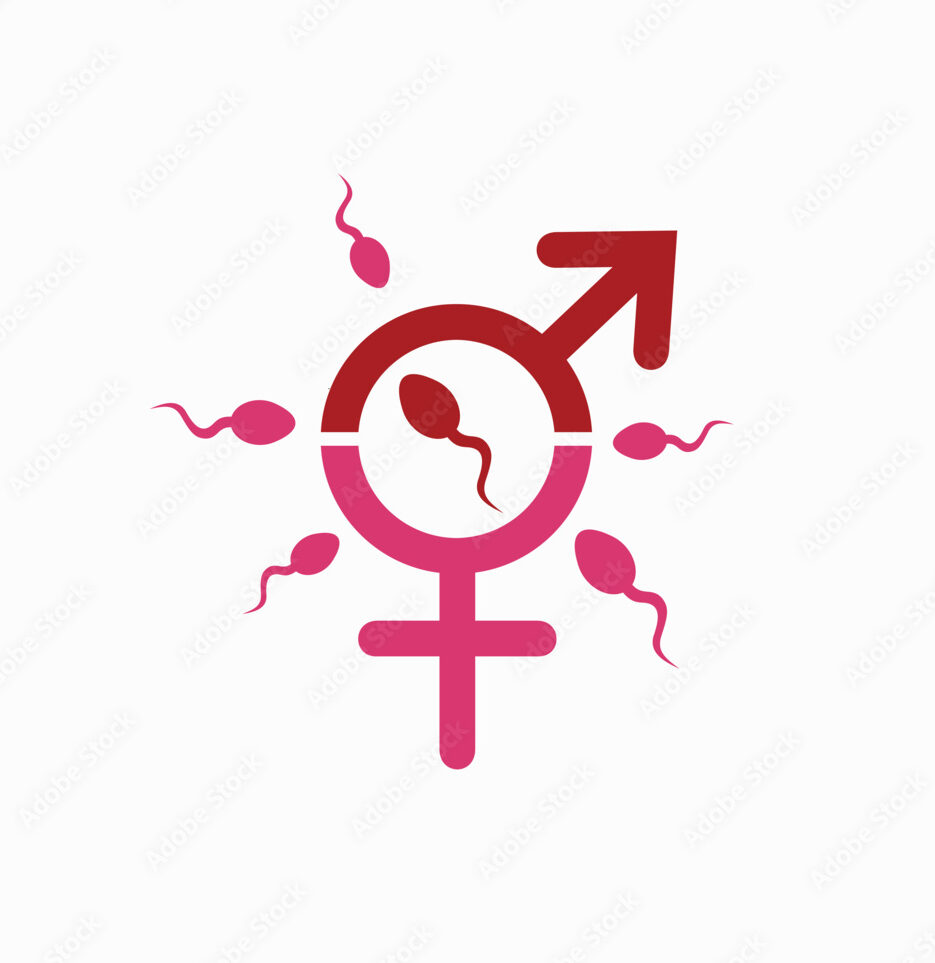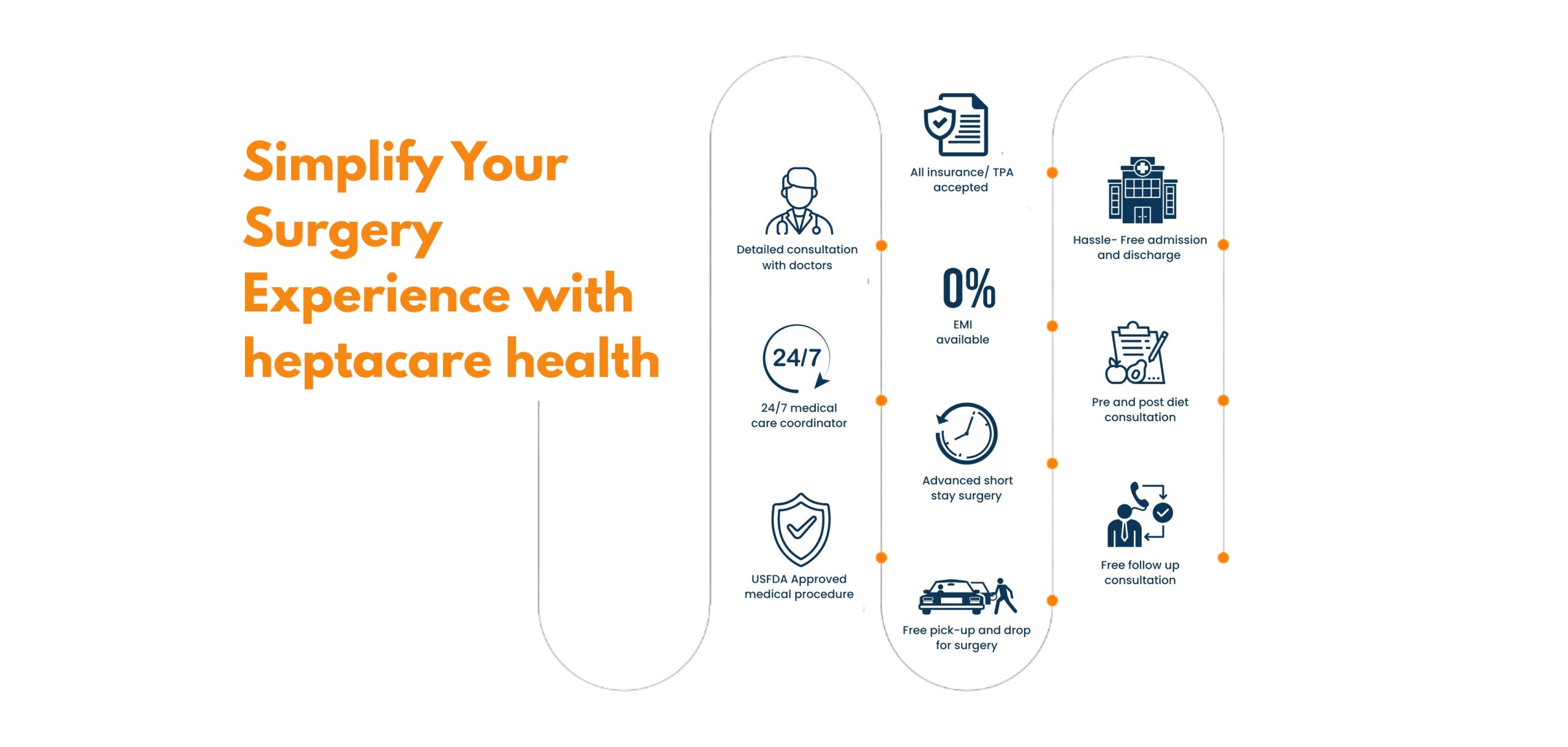Infertility is the inability to get pregnant. Healthcare providers diagnose it after a person or couple has had unprotected sex for 12 months without a pregnancy. There are many treatment options for infertility, including medications to correct hormonal issues, surgery and fertility treatments like in vitro fertilization (IVF).
Happy Patients
Disease
Hospitals
Cities
Infertility is a disease that means you’re unable to get pregnant. For females, an infertility diagnosis comes after:
Trying to get pregnant means you’re regularly having sex without birth control. Some people receive a diagnosis sooner if they have a medical condition or uterine factor infertility.
Causes of infertility can be due to either partner. In fact, infertility occurs due to a problem with the male reproductive system just as frequently as it occurs due to a problem with the female reproductive system.
Infertility in females can result from age, hormone conditions, medical conditions, and lifestyle or environmental factors.
Another name for it is “female factor” infertility.
Infertility can be either primary or secondary:
Primary infertility means you’ve never been pregnant and can’t get pregnant after six months (older than 35) or one year (younger than 35) of trying.
Secondary infertility occurs when you can’t get pregnant again after having at least one successful pregnancy and birth.
nfertility is a common disease. At least 10% of females deal with infertility of some kind. The chances of infertility increase with age.
The most common sign of infertility is being unable to get pregnant despite having regular, unprotected sex. Other signs may include absent or irregular periods.
Most cases of infertility in people with a uterus involve problems with producing and releasing eggs (ovulation). It can be due to a condition like polycystic ovary syndrome (PCOS) or other conditions like primary ovarian insufficiency (POI), a condition in which an extremely low egg supply makes your ovaries stop functioning before the age of 40.
Your chances of becoming pregnant decrease with age. Research shows that age is becoming a more common factor in infertility because many couples are waiting to have children until their 30s or 40s. People over age 35 have a higher risk of having fertility issues. The reasons for this include:
Once your healthcare provider diagnoses infertility and determines a cause, they’ll suggest possible treatment options. Treatment options depend on the cause. Some of the treatments are:
Some people will require special treatments like intrauterine insemination (IUI) or assisted reproductive technologies (ART) like in vitro fertilization (IVF). Adoption and gestational surrogacy may also be options for people with infertility who wish to start a family.
Complications of fertility treatment mainly involve complications with using medications to stimulate ovulation. These complications include:
You can’t predict or prevent most types of female infertility. However, you may be able to control some of the risk factors that contribute to infertility with lifestyle modifications. Examples include:
It’s important to regularly visit your healthcare provider and discuss any other risks you may have for infertility. You should also schedule annual checkups with a gynecologist once you begin having sex, so your healthcare provider can better detect conditions that may affect your future fertility.
Many factors that affect fertility, like medical conditions and congenital anomalies (things you’re born with), are beyond your control. Lifestyle factors, however, are within your control. Taking some of the following steps can help promote fertility:
It’s also important to visit your healthcare provider annually once you become sexually active. Regular visits and preventive screenings are the best ways to take control of your sexual health.


Based on 7721 Recommendations | Rated 4.68 Out of 5
Happy Patients
Clinics
Cities
Surgeries
Doctors
Hospitals

IUI (Intrauterine Insemination) is a fertility treatment where washed sperm is directly placed into the uterus to increase chances of pregnancy.

IVF is a fertility treatment where eggs and sperm are combined in a lab to create embryos, which are then transferred to the uterus for pregnancy.
Male fertility depends on healthy sperm count, motility, and shape for successful fertilization.

Female fertility relies on regular ovulation, healthy eggs, and a receptive uterus for conception.

Egg freezing is a procedure where a woman’s eggs are collected, frozen, and stored to preserve fertility for future use.

➡️ In men, low sperm count, poor sperm quality, or hormonal issues are common.
➡️ In women, ovulation problems, blocked fallopian tubes, or uterine conditions may cause infertility.
➡️ If you’re under 35, try for 12 months.
➡️ If over 35, consult after 6 months of trying without success.
➡️ IUI involves placing sperm directly into the uterus.
➡️ IVF involves combining eggs and sperm in a lab, then placing an embryo in the uterus.
➡️ Yes, age plays a key role. Fertility starts to decline after 30 and drops faster after 35, affecting both natural conception and IVF success rates.
●IUI treatment cost in Vizag ● low-cost IVF treatment in Hyderabad ● cashless fertility treatment near me ● painless IUI procedure in Vijayawada ● fertility treatment with insurance in Vizag ● IVF treatment cost in Hyderabad ● fertility treatment packages in Vijayawada ● affordable fertility clinic near me ● best IVF center in Hyderabad ● fertility consultation charges in Vizag ● IUI & IVF treatment cost in Vijayawada ● fertility hospital near me ● IVF procedure price in Hyderabad ● low-cost fertility treatment in Vizag ● fertility test cost near me ● fertility treatment with EMI in Vijayawada ● fertility specialist doctor near me ● fertility treatment packages in Hyderabad ● fertility clinic near me ● egg freezing cost near me ● IVF treatment for couples in Vizag ● painless IVF treatment in Hyderabad ● IVF for women above 35 near me ● best IVF hospital in Vijayawada ● IVF procedure cost in Hyderabad ● IVF treatment offers near me ● advanced fertility hospital in Vizag ● affordable IVF treatment near me ● fertility consultation fees in Hyderabad ● IVF treatment with EMI option ● advanced fertility care near me
Disclaimer: **The result and experience may vary from patient to patient.. ***By submitting the form or calling, you agree to receive important updates and marketing communications.
Getting an accurate diagnosis can be one of the most impactful experiences that you can have.

cure with care
Copyright © 2025. All rights reserved.
Consult with our expert surgeon for more than 50+ diseases
Happy Patients
Hospitals
Cities